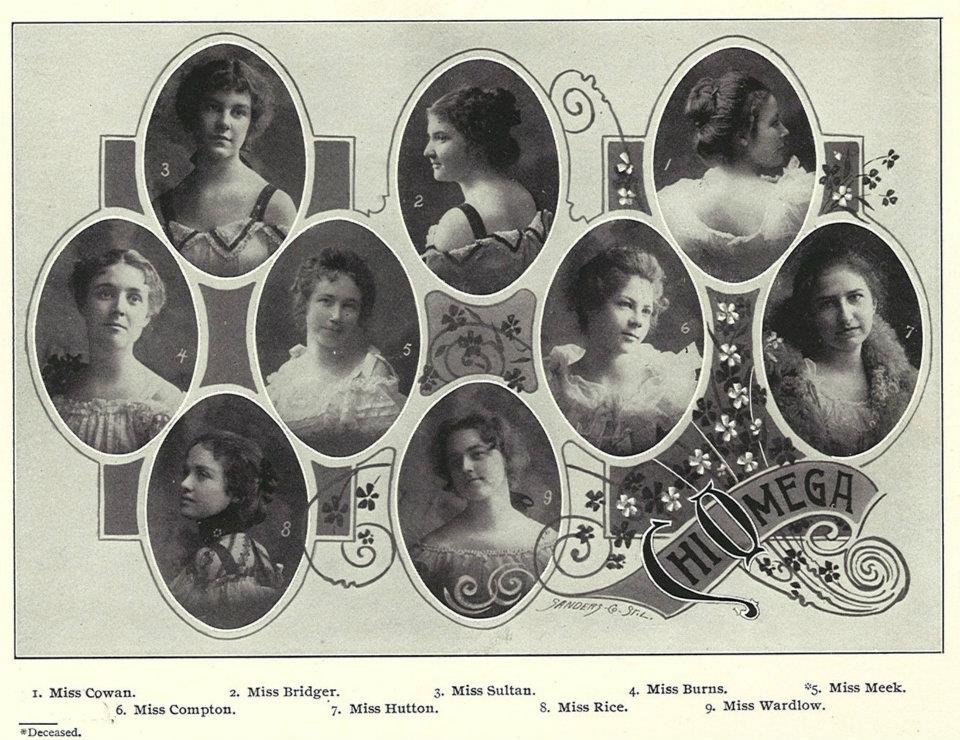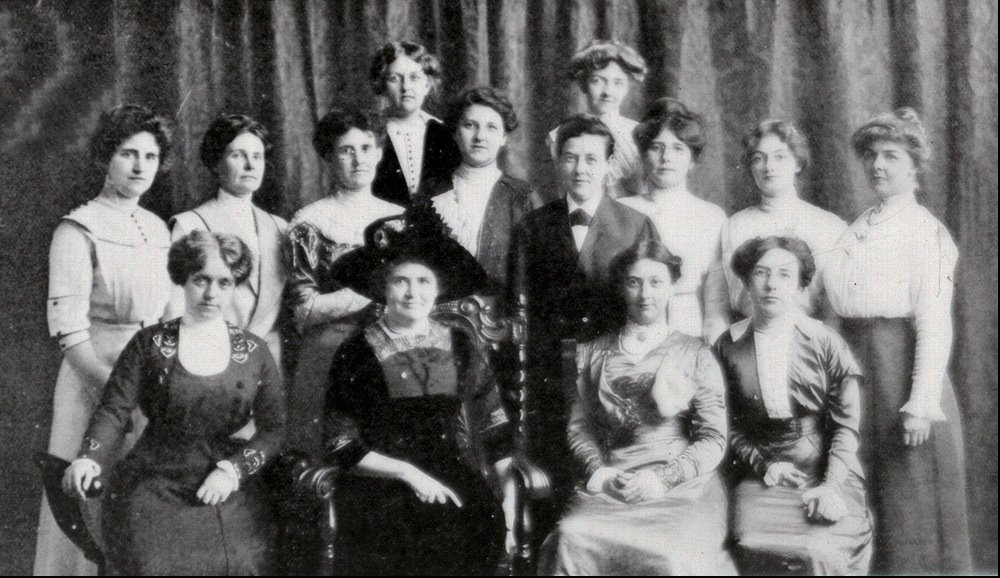Today with 26 member organizations, a presence on over 670 campuses, 117 years of panhellenic pride, and the title of one of the largest organizations advocating for women, the National Panhellenic Conference (NPC) remains committed to assisting collegiate and alumnae chapters in fostering fraternal relationships, but when did Chi Omega join this national conference and how did NPC come to be?
On April 16, 1891, Kappa Kappa Gamma gathered with six of our now panhellenic peers they had invited to meet in Boston to discuss the key topic of “rushing.” That conversation quickly evolved and according to the minutes, “plainly indicated that the fraternities were desirous of knowing more of each other and had caught the true fraternity spirit.”
A couple years later, a more informal gathering took place at the Chicago World’s Fair in 1893. No records exist from this meeting and the group then fell dormant for the next several years. In 1902, Alpha Phi invited those who attended the 1891 meeting along with two new organizations, one of which was Chi Omega, to attend a gathering.

At the time of the invitation, Edith Wardlaw was serving as Chi Omega National President. Edith had fallen extremely ill with yellow fever during her first term and was unable to assume the duties of S.H. Clara Earle acted as interim S.H., but by the time new arrangements had been made for the position and word had traveled regarding the meeting, the meeting had passed.

Chi Omega may have missed the first meeting, but on May 24, 1902, the world’s first interfraternal association, the Inter-Sorority Conference (ISC), later known as the National Panhellenic Conference, was born.
It was at this meeting where the delegates in attendance resolved to convene annually, and Laura Hills Norton of Kappa Alpha Theta was elected chairman.
Amy Olgen Parmelee, who became chairman in 1905, was only a few months out of college when she represented Delta Delta Delta at the 1904 meeting, held at Chicago’s Columbus Safety Deposit Vaults. She described the atmosphere as, “Ten delegates assembled, mainly residents of the area… The very air in that small, windowless room… seemed heavy with a sense of secrecy. Fostered, no doubt, by tall tales of Greek brothers regarding secret meetings at midnight, disguised insignia, and buried archives, these women were deeply conscious of the sacredness of their vows to their respective orders. Great care was taken not to utter inadvertently some word which might possibly reveal the meaning of secret motto or emblem.”
Beyond this initial cautious nature of the delegates in the early years, strong bonds in panhellenic sisterhood were forged as decisions were made to advance the sorority experience and friendships were formed.
NPC in Later Years
Although Chi Omega missed the first NPC meeting due to illness, the Fraternity joined the following year and has remained a leader in fraternal experience ever since.
Since the establishment of NPC, Chi Omega Sisters have served as chairman four times. Jobelle Holcombe (1907), Mary Love Collins (1917-1919), Elizabeth Dyer (1963-1965), and Jean Mrasek (2013-2015) all carried the torch and passed the light of sisterhood onto the next panhellenic woman.
In a 1907 issue of The Eleusis it was said, “Miss Jobelle Holcombe of Chi Omega made a splendid chairman with her pleasing voice and her systematized information.”

During Elizabeth Dyer’s time as chair, NPC discussed issues similar to what is being discussed today. Topics like the freedom to associate were among the most pressing while she led NPC. Our most recent Sister to serve as NPC chair is Jean Mrasek. You can read more about Jean’s story and Chi Omega involvement here.
In 1984 NPC brought its operations to a new level of professionalism when a national office was opened in Indianapolis. Through this endeavor, NPC has been better equipped to more efficiently fulfill its mission which reads:
The National Panhellenic Conference is the premier advocacy and support organization for the advancement of the sorority experience.
Over the years, name changes to the organization have included Inter-Sorority Conferece (1902), National Panhellenic Conference (1908), National Panhellenic Congress (1911), then back to National Panhellenic Conference (1945). With leaders like our beloved Sisters Jobelle, Mary Love, Elizabeth, and Jean, NPC continues to work toward continuous progress and adapting the sorority experience to the ever-changing collegiate campuses.
